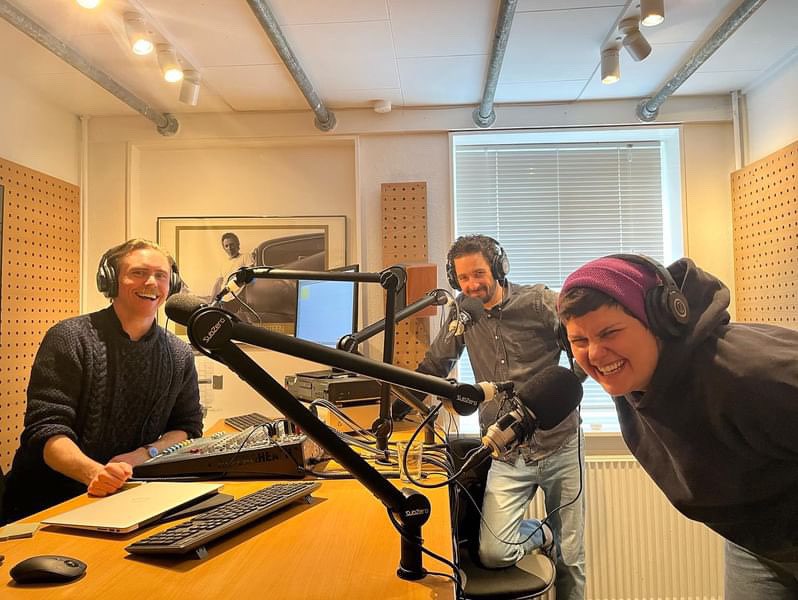First foreign fighter investigation dropped
Police in Copenhagen have dropped the first and so far only reported effort to prosecute a Dane who travelled to Syria to fight in that country’s civil war. Investigators said their preliminary investigation into imam Abu Ahmed and aid organisation Hjælp4Syrien failed to determine that any laws had been broken. The move comes as something of a loss for the Justice Ministry, which has repeatedly warned that Danes who fight in Syria risk prosecution when they return home. Law enforcement officials say they currently have no other open investigations into returned Syrian fighters. – Berlingske
SEE RELATED: Editorial | Fighting on the side of history
Executives: 2014 is the year of the investment
A majority of Danish executives expect their companies will invest the same or more than they did in 2013. Just 14 percent of those participating in the survey said they would invest less. The announcement is the latest indicator that businesses and consumers are increasingly optimistic about the economy. “After five years of recession, people are starting to feel like we’re moving away from the edge of the abyss,” said Karsten Dybvad, the head of Dansk Industry, the country’s largest business lobby. – Berlingske Business
SEE RELATED: 'Helle Effect' creating positive consumers
More businesness hiring foreign bosses
An increasing number of Danish businesses are finding their top executives abroad. One in three firms currently has a non-Dane as their managing director. As late as 2007, that number was one in eight. Companies themselves report that a lack of domestic candidates led them to cast their nets abroad. Increasing global competition means it is likely that the number of foreign executives here will only rise in the years to come. “It’s skills and talent that should determine whether you can make it as an executive. Not your nationality,” said Jørgen Huno Rasmussen, a former executive with FL Smidth and member of the board of a number of companies. – Jyllands-Posten
SEE RELATED: Councils to embrace English to assist foreign companies
Businesses: improve secondary schools
The nation’s largest business lobby is urging the government to make the most of its planned reform of the vocational school system. Carsten Dybvad, the head of Dansk Industri, called the measure “just one step” towards a complete overhaul of the secondary school system. Less than 20 percent of young people today choose a vocational school, while the remainder choose the more academically oritented gymnasium. “Vocational schools have a reputation for being the last choice. Why is it that we think we can have a manufacturing sector without having people who have learned a trade?” Dybvad said. – Politiken
SEE RELATED: 6 out of 10 drop out of vocational schools
Survey: many steer clear of the disabled
One in three Danes prefer to keep their distance to a person with a disability, according to a survey by the Social Affairs Agency. Meanwhile, half say they would choose not to sit next to someone with an obvious mental illness at a restaurant. The disabled themselves say they experience that people either steer clear of them when they meet on the street or leave an extra table between them at restaurants. However, many also said it appeared that people often gave them extra room out of unnecessary courtesy. An estimated 17 percent of Danes have some form of physical disability. – DR Nyheder
SEE RELATED: City to crack down on disabled parking cheats
Editorial excerpt | So far, yet so close
It makes no sense to see [Saturday’s attack in Nairobi] as something strictly local. Al-Shabaab, which has claimed responsibility for the attack, has its roots in neighbouring war-torn Somalia, but it recruits many of its members from the refugee camps spread throughout the region, including Kenya. The camps are set up at the behest of the West in the thinking that aid is best given as close to refugees’ homeland as possible. While that may be true in principle, it only works if we provide all the necessary aid and not leave host countries, who themselves may be fragile, to foot some of the bill. […] The fewest conflicts remain local. The terror attack in Kenya is a sad reminder of that fact. – Politiken
SEE RELATED: Danish woman dodges Kenyan terror
Interested in receiving stories like these delivered to your inbox by 8am each weekday? Sign up for the Morning Briefing or any of our other newsletters today.













